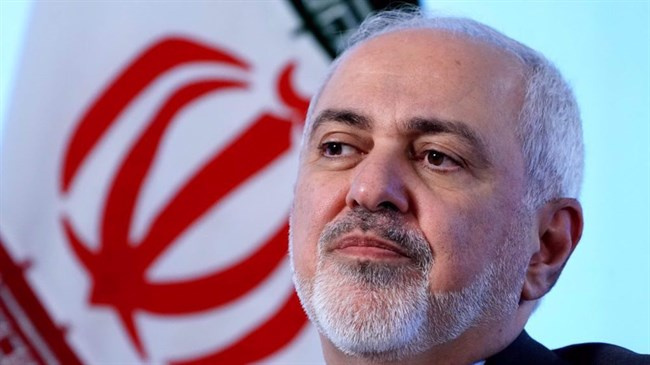Zarif urges South Korea to provide Iran with access to blocked money

Iran’s Foreign Minister Mohammad Javad Zarif in a phone call with his South Korean counterpart on Wednesday said that over the past two and a half years Tehran-Seoul relations have been influenced by South Korea's “illegal” measures, urging Seoul to immediately change its approach toward releasing Tehran’s frozen assets.
Zarif hoped that the East Asian country would give Central Bank of Iran access to its frozen assets in the South Korean banks as soon as possible, IRNA reported.
The Iranian foreign minister also regretted that Seoul’s “illegal” measures in the past two and a half years has especially caused troubles for Tehran in the tough times of coronavirus pandemic and the severe need of the Iranian people to their financial resources to fight the deadly virus.
On Tuesday, Iranian Government spokesman Ali Rabiei said Hemmati had reached a preliminary agreement with the South Korean ambassador that $1 billion of the blocked resources should be released.
But in Seoul, a South Korean foreign ministry official told reporters, "The actual unfreezing of the assets will be carried out through consultations with related countries, including the United States.”
Reacting to the reports coming from Seoul, Hemmati said on Wednesday Iran reserves the right to take legal action against the freeze of its funds in South Korea.
Some seven billion dollars in Iranian assets have been frozen in South Korean banks due to the sanctions imposed by the US, which ban dollar-based transactions with Iran.
Minister of Foreign Affairs of South Korea Chung Eui-yong in his phone call with Zarif said, since the telephone conversation took place only three weeks after he took office as the foreign minister of South Korea, it indicates the significance given by Seoul to its relations with Tehran.
Chung added that he is determined to try to the best of his ability to solve the problem of Iranian money blocked by Korean banks.
Referring to the South Korean ship seized in the Persian Gulf by Iran and thanking Iran for having freed its crew members, he hoped that the ship would soon go back to its country.
Zarif said that the seizure a “technical” issue that is being dealt with by the Iranian judicial officials, adding that Iran has spared no effort to provide consular, health and welfare services for the crew of the ship.
On January 4, the Islamic Revolution Guards Corps (IRGC)’s Navy said the South Korean-flagged MT Hankuk Chemi tanker had been impounded upon a request by Iran’s Ports and Maritime Organization and a verdict by the prosecutor's office of Hormuzgan province, Press TV reported.
A month later, Iran said that it had given permission to the crew members of the South Korean vessel it had seized for environmental pollution to leave the country in a humanitarian gesture.
In the Wednesday talks, Chung also expressed Seoul‘s support for dialogue between parties to the 2015 Iran nuclear deal on reviving the multilateral agreement.
The fate of the Iran nuclear agreement, officially known as the Joint Comprehensive Plan of Action (JCPOA), hangs in the balance due to the US sanctions and failure of the parties to the accord to live up to their commitments.
Source: Iran daily

